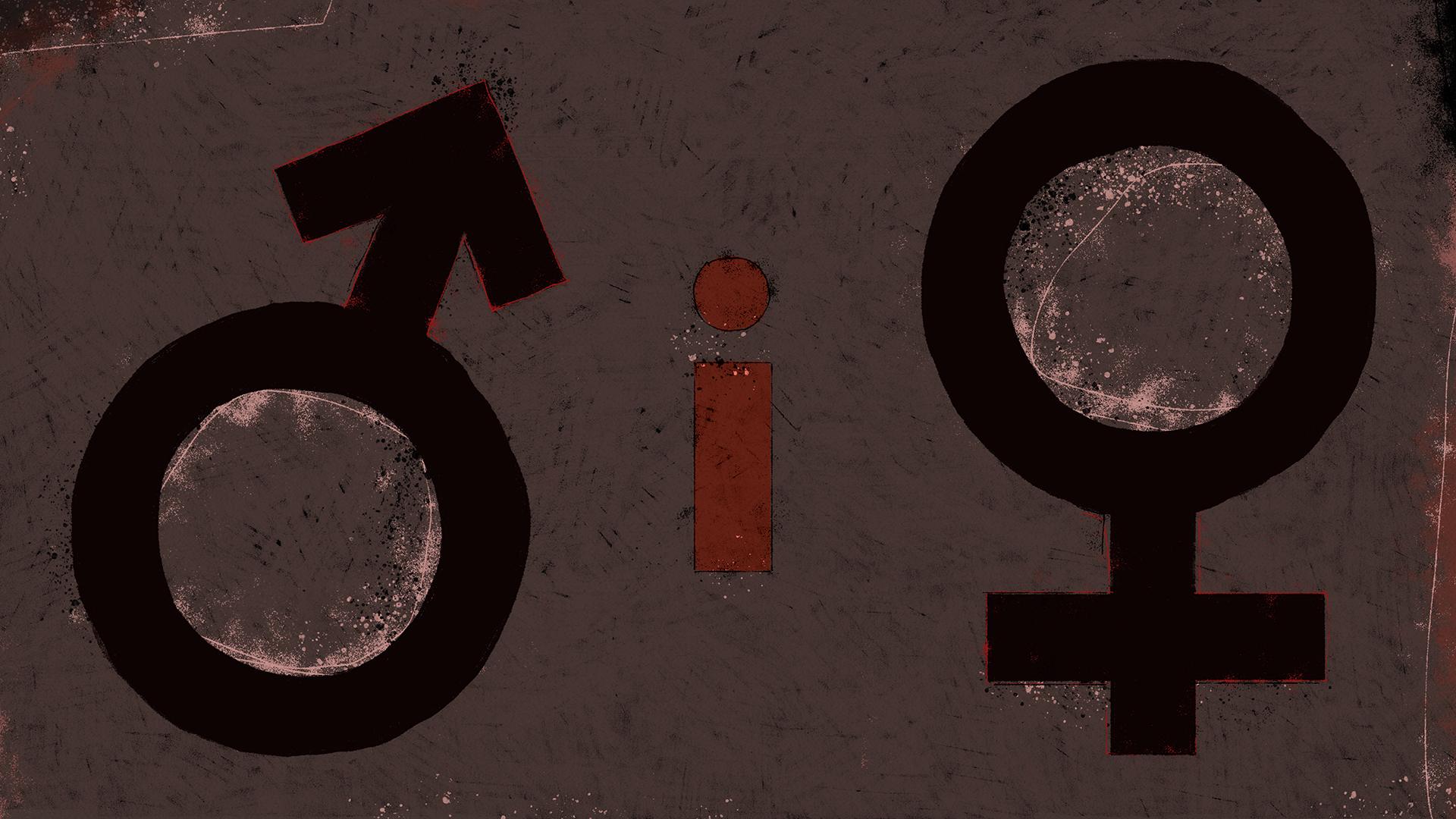Woman discovered she is intersex aged in her 40s
- Published
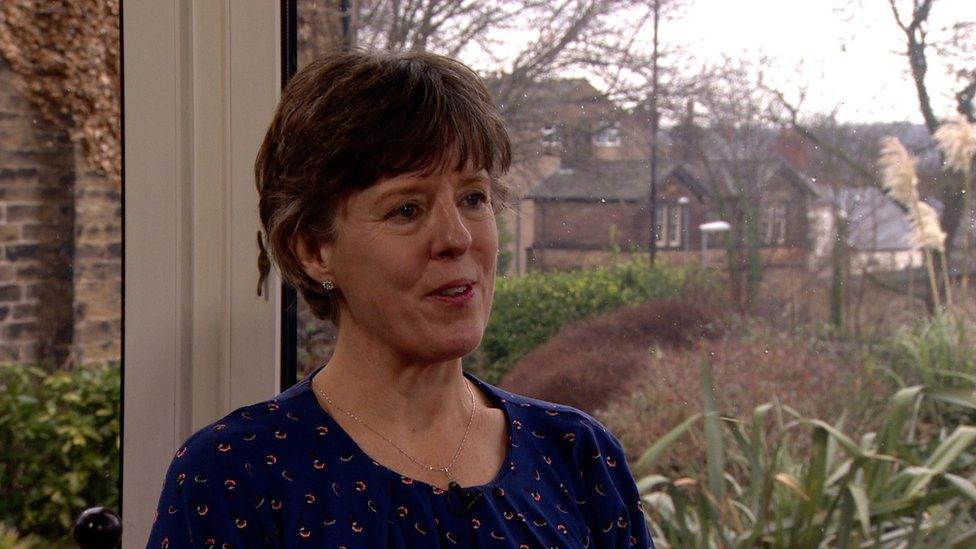
The UN says between 0.05% and 1.7% of people are born with intersex traits
A woman who only discovered in her 40s that she was born intersex says her condition was "covered up" by operations in childhood.
Sara Gillingham has variations in her sex characteristics thought to be caused by her mum taking a drug in the belief it would prevent miscarriage.
Ms Gillingham, who was born near Selby, said she was 43 before she found out exactly why she had undergone surgery.
She had been told the operations were because she was born early.
Ms Gillingham said: "My earliest memory was that I always felt I was somehow different, I was very much a tomboy, I never quite fitted in but I didn't know why."
Her story was revealed as researchers claim there is a postcode lottery when it comes to medical treatment for people who are intersex, an umbrella term used to describe people who are born with biological variations in their sex characteristics that do not fit typical male or female categories.
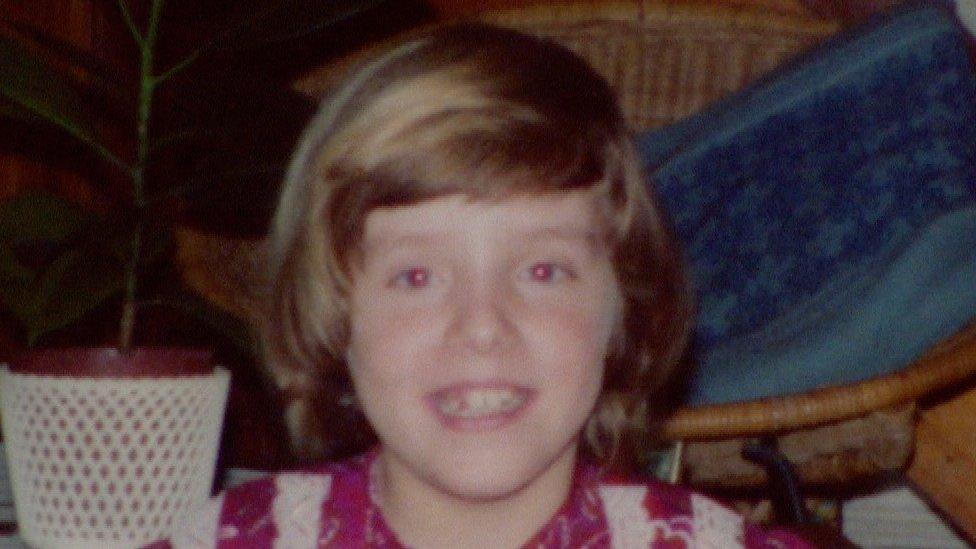
As a child, Ms Gillingham went through medical experiences she describes as "quite traumatic"
Ms Gillingham said she remembered being examined in front of medical students as a child, adding: "It was quite painful the things they were doing to me so I knew which parts of my body they were operating on."
She was later told her variation was caused by her mother taking progestin, which has been linked with cases of people being born intersex, to avoid miscarriage.
After finding out more about the nature of her operations, Ms Gillingham returned to Sheffield Children's Hospital hoping to see her medical records from her time there.
However, she was told her records had been destroyed.
She is now campaigning to change in the way the medical system treats people who have variations in sex characteristics, and managers from the hospital say they are now willing to meet Ms Gillingham in private to discuss her concerns.
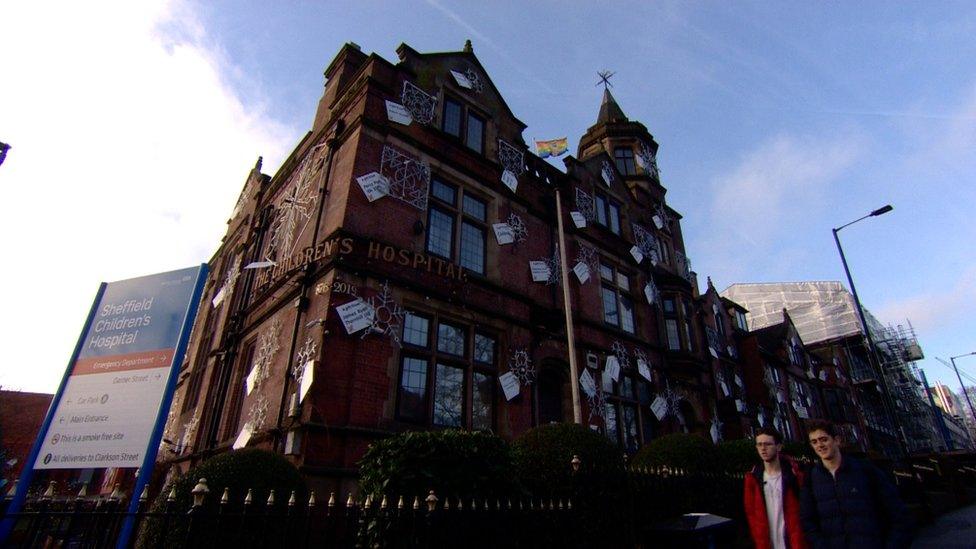
Sheffield Children's Hospital said Ms Gillingham's records were destroyed
Law lecturers Mitchell Travis and Fae Garland have researched which hospitals offer the best all round care to patients with variations in sex characteristics.
Dr Travis, from the University of Leeds, said: "I think the most surprising thing for me was the variation in terms of who gets access to best practice in this area and who doesn't, and it is a huge regional variation."
The Government Equalities Office is gathering evidence on the experiences of people who have variations in sex characteristics and has heard from people who had poor experiences when using the healthcare system between 20 and 40 years ago, with some struggling to access medical records from that time.
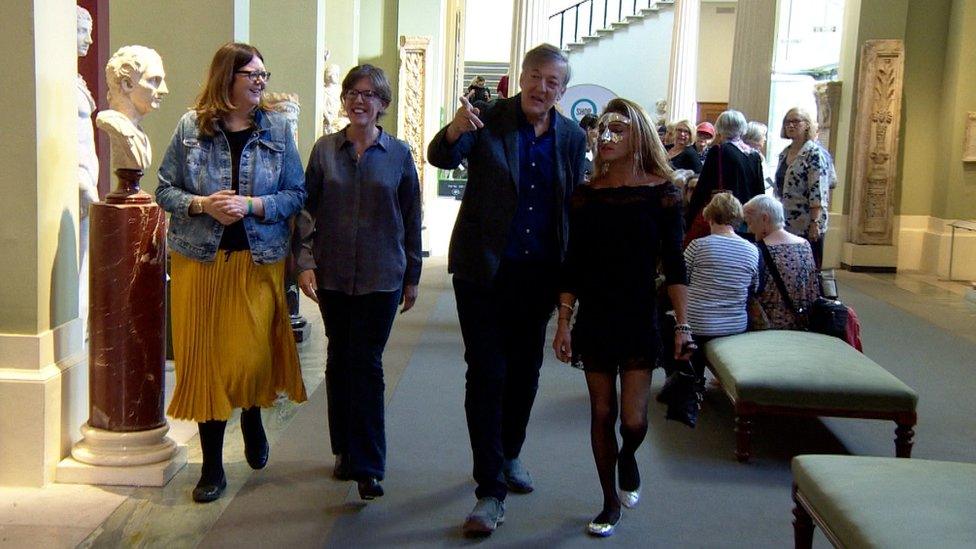
Stephen Fry met with a group of intersex people at the Ashmolean Museum
Stephen Fry has called for intersex people to be treated with "common politeness and decency".
The writer, actor and broadcaster said intersex people, referred to as hermaphrodites by the ancient Greeks, have been "so hidden" within society.
However, he believes this is something which would improve if more museums displayed sculptures of intersex people from throughout history.
Mr Fry said: "It is extraordinary to remember how the first gay kiss on Brookside caused people to drop their crockery, now we accept it as a perfectly natural and normal thing to see and I'm sure that will be true of intersex people too."
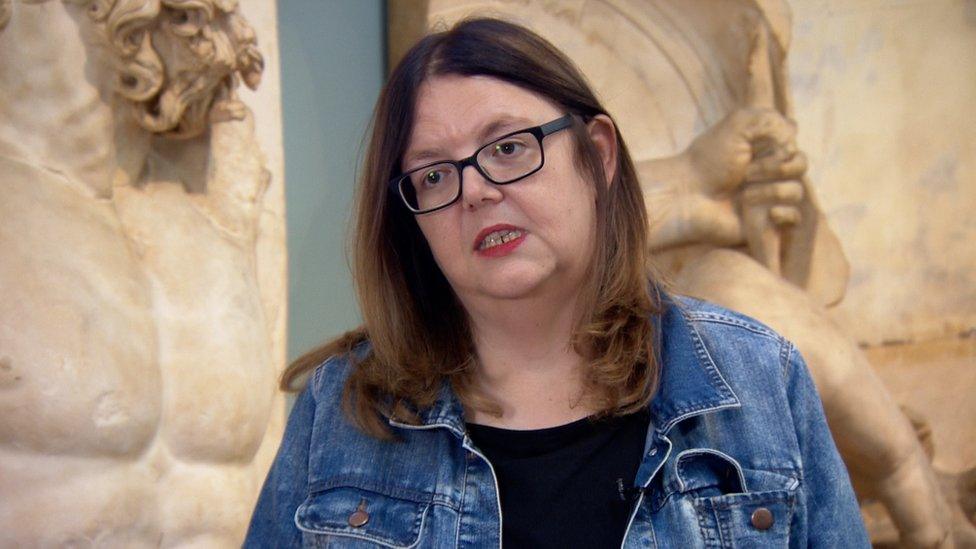
Amazon Jackson described herself as a "confident female comedian who's really intersex"
One of the people he met was comedian Amazon Jackson, from Hull, who only found out she was intersex at 30 when she was about to undergo fertility treatment and discovered she did not have ovaries.
She said: "It's fantastic that Stephen is such an ally towards the intersex community and wants to get the understanding out there and to move away from the ignorance that exists."
Mr Fry also met with artist Ela Xora who said: "We have to start thinking of biological sex and gender in the human race as something which is from the inside out, not from the outside in."
Correction 18 February: An earlier version of this story featured a childhood photograph that was not Ms Gillingham and included in error. This has now been removed.
Inside Out (Yorkshire and Lincolnshire) investigates the experience of people born intersex on BBC One at 19:30 GMT on Monday 17 February and can be seen afterwards on BBC iPlayer.

Follow BBC Yorkshire on Facebook, external, Twitter, external and Instagram, external. Send your story ideas to yorkslincs.news@bbc.co.uk, external.
- Published14 January 2019
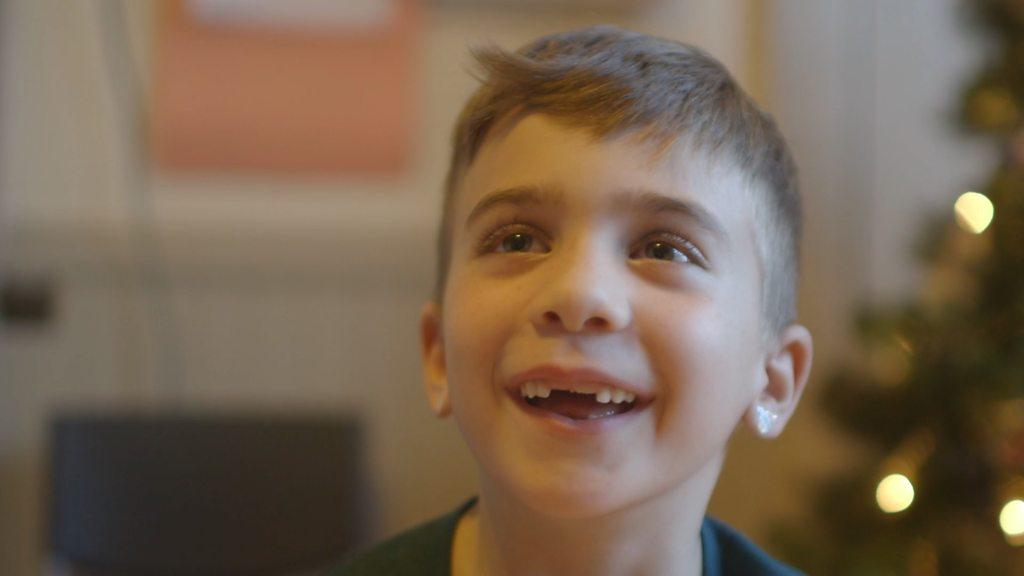
- Published25 April 2019

- Published26 July 2019
